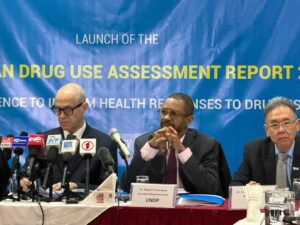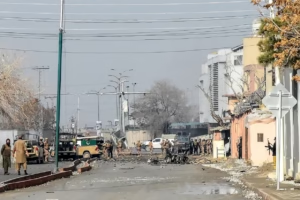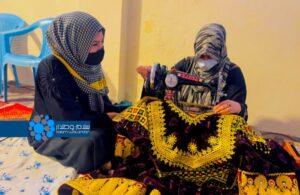As the value of the US dollar continues to rise against the Afghani currency, officials at Afghanistan’s Central Bank/ Da Afghanistan Bank (DAB) state that the bank is committed to maintaining the value of the Afghani and preventing fluctuations in the country’s monetary market.
“The central bank is committed to protecting the value of the Afghani and preventing any fluctuations. We have sufficient foreign currency reserves to meet the demands of the monetary market and the foreign exchange market when necessary. Our goal is to make progress in preserving the Afghani’s value and to prevent sharp fluctuations. We have the necessary resources and, based on reasonable monetary policies, we will meet the currency needs of the market and financial institutions,” Hasibullah Noori, spokesperson for the Central Bank of Afghanistan, told Salam Watandar.
On Tuesday, January 14, one US dollar was being sold for 71.94 afghanis while a day earlier it was traded at 73.99 in the monetary market. Meanwhile, some citizens and shopkeepers in Kabul have complained about rising food prices in the city’s markets, attributing the increase to the rising value of the dollar against the Afghani.
Mohammad Yosuf, a resident of Kabul’s District 4, says, “The government should set fixed prices in the city. We came here to buy food and they say the dollar has risen. If the dollar goes down, will they lower the prices?”
Baryalai, a shopkeeper in the Khair Khana area of Kabul, also comments, “The increase in the dollar’s value against the Afghani has a significant impact on food prices. For example, a sack of tea that cost 1,280 afghanis is now priced at 1,370 afghanis. A small bottle of cooking oil has gone up by 30 afghanis, and rice prices have increased by 100 afghanis.”
Officials at the Kabul Municipality state that the administration distributes weekly price lists to shopkeepers and that if the dollar price stabilizes in the coming week, a new price list will be prepared and distributed.
Nematullah Barekzai, a spokesperson for the Kabul Municipality, said, “The municipality has been distributing price lists for two to three years now. Our price lists are valid for one week, and if the dollar remains at the same price next week, we will update the price list accordingly. The price list will be enforced in the city, and fluctuations in the dollar are certainly one of the factors affecting food prices. Future price lists will account for these changes.”
Economic experts also suggest that international political decisions can have immediate and direct effects on Afghanistan’s markets.
Shaker Yaqubi, an economic expert, says, “The depreciation of the Afghani against the dollar has several key factors. One of them is international political decisions, such as recent statements by Donald Trump about halting US aid to Afghanistan. These have immediate impacts on the market by creating concerns about the entry of foreign currency into the country, leading to an increased demand for the dollar. Another factor is the scarcity of foreign currency in the market. A third factor is business concerns, particularly among importers who need more dollars for foreign goods. The decrease in aid could negatively affect traders.”
Taj Mohammad Talash, another economic expert, recommends better management of the Central Bank’s foreign currency reserves to prevent the dollar’s rise. “The dollar should not be smuggled, gold should not be smuggled, taxes should be collected transparently, and Da Afghanistan Bank’s reserves should be managed. These four fundamental factors directly affect the dollar exchange rate.”
It is worth noting that in order to stabilize the Afghani’s value, the Afghanistan Central Bank recently auctioned $16 million in foreign currency.






